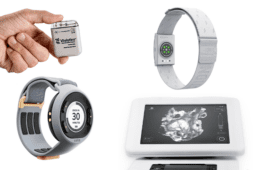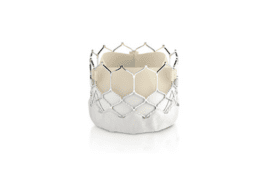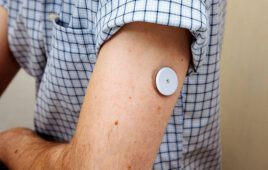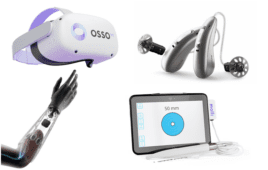 In the medical device world, buzz is not traditionally something companies strive to achieve. A blood pressure cuff does not need brand awareness beyond the hospital or pharmacy purchasing the equipment. Compare that to the commercial digital space, in which brand awareness is the only way to survive.
In the medical device world, buzz is not traditionally something companies strive to achieve. A blood pressure cuff does not need brand awareness beyond the hospital or pharmacy purchasing the equipment. Compare that to the commercial digital space, in which brand awareness is the only way to survive.
In the middle of these two extremes is the digital health space. It’s easy for marketing teams to get distracted by a desire to have a product get picked up by big media outlets or go viral. They aren’t necessarily wrong about it. Health app developers and electronics companies that get mentioned in New York Times or the Wall Street Journal certainly get a boost from positive press.
Likewise, when media ignores great products that could be game-changers, we who cover the technology regularly tend to feel a bit cheated on behalf of those companies.
One case in point is an application from Opternative. Using a computer and smartphone, Opternative enables a digital eye exam in about 25 minutes in a patient’s home. Within 24 hours an ophthalmologist reviews a patient’s results and can offer a prescription for glasses and contacts anywhere. This is a new application that could cut out the need to go to the optometrist simply to refill a prescription.
The company is registered with FDA, and has IRB clinical data to show the product’s equivalence to an in-office eye exam that would be used to refill a prescription.
iMedicalApps, a physician-run site that provides reviews of apps from physician users, included Opternative in a discussion that highlights what’s lacking in with digital health media hype. Editor Iltifat Hussein’s article discusses Opternative’s technology and laments the focus of big media on flashier, and less practical or less researched technologies. His lament on the lack of publicity for groundbreaking technology of echoes sentiments I’ve shared with other colleagues.
“I share his frustration,” says Tim Gee, principal of Medical Connectivity Consulting. “Media picks up on projects like the tricorder because they are cool.” And these products are cool, but they don’t necessarily have regulatory approval, clinical data, or immediate applicability that really can make a difference in how healthcare is done. So when poorly performing self-diagnosing apps get the spotlight while products that deserve a little fan fare, such as Opternative, get ignored it’s understandably unsatisfying.
But this raises the question: How important is the hype to digital product developers? It depends.
“We would love to be in buzzfeed, the New York Times, and on everybody’s Facebook page,” says Aaron Dallek, cofounder and CEO of Opternative. “But we’re going to build a strong company, with or without viral marketing.”
Dallek says he sees immediate potential in appealing to online retailers who often lose customers because patients have to go into an retailer’s office to update prescriptions. He does note, however that the secondary prong of the marketing campaign is targeting patients directly, in which case, a viral media push would greatly benefit the company. “We understand that only a small percentage of people need an eye exam at any given moment. Being there at the moment of need will help us get patient customers.”
There many digital health companies who are doing very well without hype, according to Gee. For example, the company Cardiopulmonary provides enterprise management system. Its system has been around for 10 years or so. “By anecdotal accounts, they do incredible work, but its very unlikely that the public will ever hear of their technology,” Gee says.
It might well be that the best medical technology, even disruptive technology doesn’t need the high-profile media focus, depending on how it is designed and how the company plans to market the product. But certainly digital companies shouldn’t pursue viral or big marketing at the expense of smart targeted marketing. “At the end of the day, companies are responsible for their own marketing,” says Gee, adding that successful adoption in the marketplace doesn’t always require a big media push.





I love your opening comment about buzz; so true!
In many cases, buzz is like a popularity contest and has little or no real impact on sales. What medical device and mHealth companies need is solid marketing, which many — especially startups — lack.